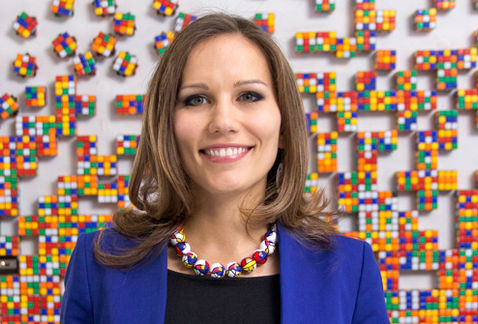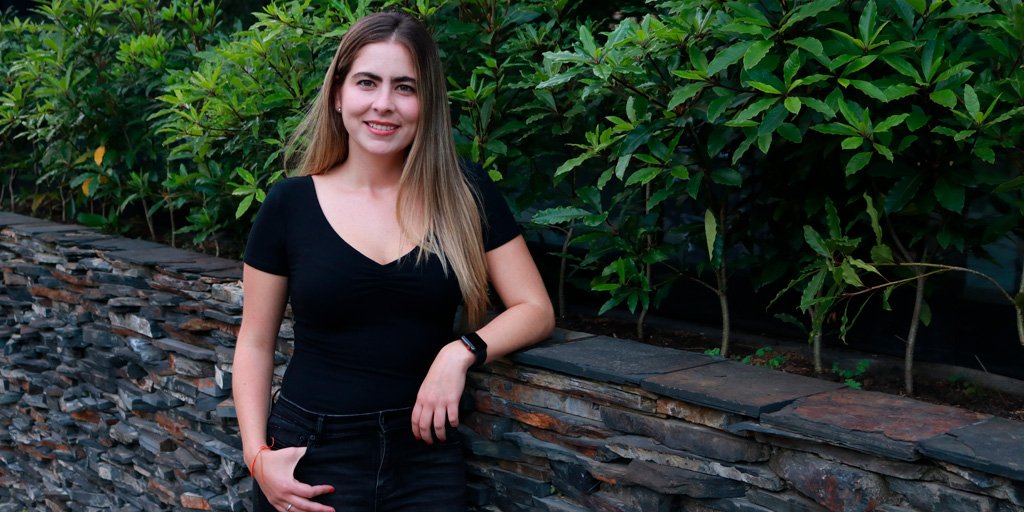As the only Latin American woman in her Y Combinator cohort, Marta Forero is helping break the mold for women in the tech industry. From a young age, she knew she wanted to make an impact on the world. After university, she took a high-paying job, which she then left to start a business of her own, combining her passion for education for transformative growth with a love of technology to create an online university.
The result was UBits, a corporate online learning platform headquartered in Bogota, that Marta cofonded with Julián Melo. Ubits, which also operates in Mexico and Peru, focuses on training based on bits– small training units created by industry experts…hence The University of Bits or Ubits. UBits offers corporate training in Spanish in Business, Finances, Soft Skills, and Software Skills, and is a first-mover in the space.
In this episode, Marta explains what it’s like to be a female entrepreneur in Latin America, provides tips on how to apply for YCombinator and make the most out of the experience, as well as why she and her team chose to bootstrap UBits for four years before raising money. She shares one of the more unique stories of how she met her cofounder: at a bookstore. Check out the rest of this episode to hear how Marta took UBits from Colombia to YC, and then across Latin America.
Wise Words From Dad
Most entrepreneurs, especially those from Latin America, get actively discouraged by family members when they decide to leave a stable job to follow their dreams to start a business. However, Marta’s Dad breaks this archetype and actually encouraged her to take the risk and launch her own university. He also has other pieces of useful advice for struggling entrepreneurs, and we should probably have him on the podcast someday!
Listen to my interview with Marta to find out how her Dad encouraged her to start her business, and what other entrepreneurs can learn from his advice.
A Chance Encounter at a Bookstore
Marta didn’t choose Julian as a cofounder. A book did. They ran into each other during a shared quest for a book in Bogota in 2013 and soon realized their passions for education were well-aligned. In this episode, Marta explains how she and Julian became business partners and eventually decided to work on UBits together, all after meeting in a bookstore.
Check out this episode of Crossing Borders to learn about Marta’s experience choosing a co-founder, and how to find a good match while building a business.
Tips on preparing for a YCombinator interview
After participating in YCombinator and raising $2M from investors by Demo Day, Marta is a great resource to Latin American entrepreneurs looking to approach YC. She suggests that all Latin American YC candidates learn certain financial and startup terms in English before taking the flight to Silicon Valley.
Listen to the rest of this episode to hear Marta’s advice for learning cultural communication tools to help Latin American entrepreneurs master the Y Combinator interview.
Empowering Women in Tech
Being a Latin American woman in the tech industry can potentially create barriers when seeking funding from investors. In this episode, Marta discusses the pressure she felt as female entrepreneur when she applied for YCombinator. With this in mind, she hopes to encourage and inspire younger women to challenge the paradigm and take advantage of the opportunities in tech.
Check out this episode to hear how Marta plans to bring more women into tech and entrepreneurship in LatAm.
Marta Forrero and UBits were already unique for being one of very few Latin American companies to reach Y Combinator. As a female founder, she is a part of an even smaller minority of Latin American women to participate in the accelerator program. Her inspiring story of empowering Latin American workers through online education brought her from Colombia to Silicon Valley, then back to Peru and Mexico where UBits continues to expand. Check out this episode of Crossing Borders to hear Marta tell her story in her own words.
Show notes:
- [2:44] – What is UBits?
- [3:09] – Courses the platform offers
- [4:00] – How did you decide on UBits?
- [5:26] – Why Marta decided to build a company
- [7:18] – The benefits of a supportive dad
- [9:32] – First steps in founding UBits.
- [11:32] – How did you meet your co-founder?
- [13:33] – On getting their first client
- [15:40] – Decision to focus exclusively on online courses.
- [16:52] – Toward a scalable business model
- [18:22] – When did you decide to start raising money for the business?
- [18:35] – Bootstrapping in Latin America.
- [19:40] – Applying for Y Combinator
- [23:20] -Tips for a Y Combinator interview.
- [25:18] – How did you practice putting everything into 15 second responses?
- [26:20] – Going to the US with a strategic plan and not feeling shame.
- [29:24] – How to make the most of YC
- [31:23] – Raising an investment round after Y Combinator.
- [33:05] – Advice to other Latin American founders trying to raise in the US.
- [35:10] – Being a female founder in Latin America.
- [36:40] – How the ecosystem can improve on being more gender inclusive.
- [38:20] – Advice for women looking to raise money in the US and expand their business.
- [40:46] – Marta’s top resources for entrepreneurs
- [41:47] – What’s next for you and Ubits?
Resources mentioned:



